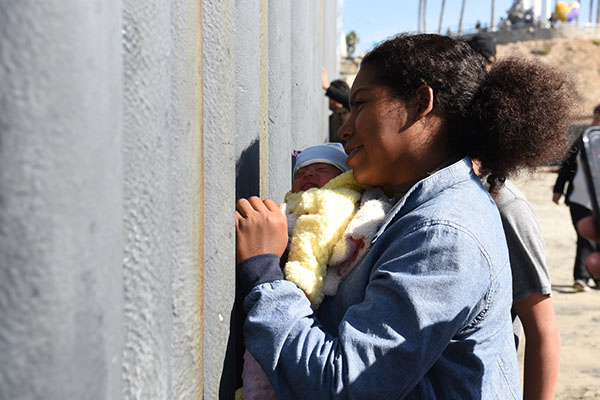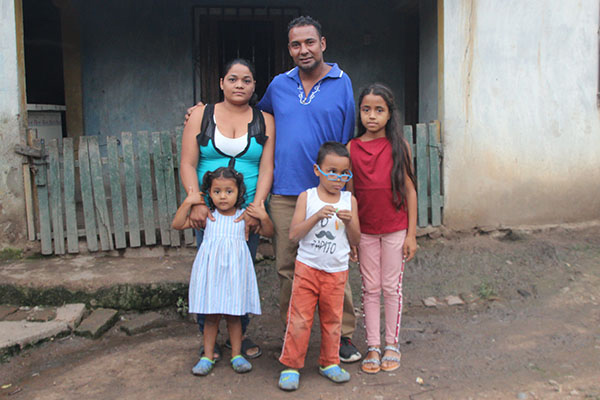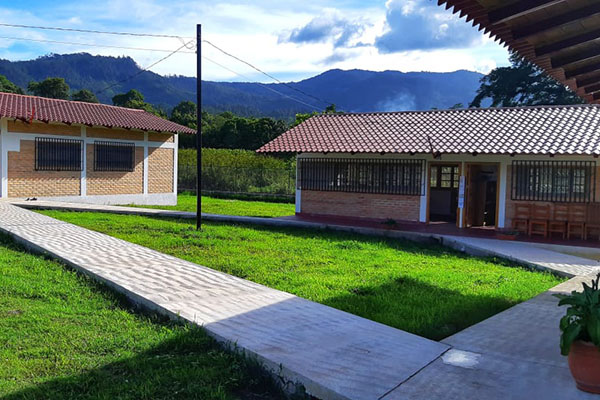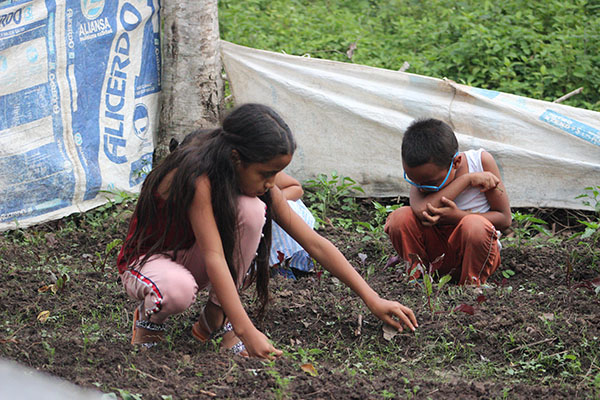Closing the Inequalities Gap to Achieve Social Justice
Around the globe, we come together to celebrate World Day of Social Justice on February 20.
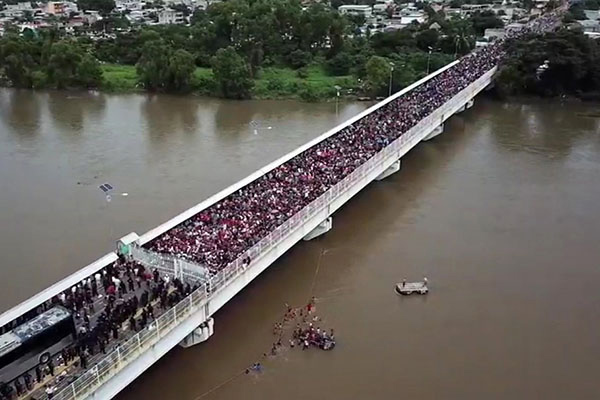 Markus Streit
Markus Streit
Coordinator of Family Services, NPH International
February 17, 2021
…
Since 2009, the World Day of Social Justice has been celebrated on 20 February. Promoting development and human dignity through social justice is a core value of the United Nations.
The purpose of the day is to bring communities globally closer together to help eliminate poverty, physical and gender discrimination. The goal is to create a diverse global culture where everyone has equal opportunities and everyone has acceptance of others.
After large numbers of people from Honduras, El Salvador, Guatemala, and Nicaragua migrated north in caravans towards the USA in 2018 and 2019, only a few managed the journey in 2020 due to the pandemic. Just recently in mid-January 2021, approximately 4,500 migrants hit the road from northern Honduras to walk through Guatemala and Mexico, which have taken measures to stop the caravans, on the way to the USA to seek asylum. Among them are many families, young parents with their children, even carrying babies.
The news about the caravan of people from Central America popped up in the media until the caravan was stopped by military barricades and teargas and the migrants were transported back to their home country. As the people dispersed, public interest also vanished.
How desperate do you have to be to take your young children and set off on a journey of thousands of kilometers into the unknown on foot with just a few clothes and no pre-booked overnight stays? These families are not looking for an adventure trip; they are just seeking a better future for their children.
Many of them are fleeing from poverty and violence in the Central American countries. Two hurricanes and the COVID-19 pandemic have exacerbated the situation, especially in Honduras.
After the recent migration caravan to Mexico was forcibly stopped and dispersed in Guatemala, the Honduran government transported the participants in buses back to San Pedro Sula: the principal city in northern Honduras. There they were abandoned to their fate and must now try to return to their home communities without food or money.
According to the Bible, social justice is a fundamental expression of Christian discipleship. As God shows His compassion for the weak and vulnerable, the Church’s social teaching calls us for solidarity. We are one human family, whatever our national, ethnic, economic, and ideological differences. We are our brothers’ and sisters’ keepers, wherever they may be. Loving our neighbor has global dimensions in a shrinking world.
One great example of solidarity is in the village, Mata de Plátano, just a few kilometers from the NPH Honduras home, Rancho Santa Fe. Since last year, NPH has been operating its first family center called ‘San José’ in a community located in a remote valley with nine smaller communities. NPH supports young families through family strengthening programs like tutoring for children and youth with learning difficulties, therapy for persons children with disabilities, psychological counseling and empowerment for girls and young women.
A total of 2,497 people live in the village of Mata de Plátano, and from this small neighborhood, 523 people have migrated to another country in the past, mostly to the United States (67%) followed by Spain (27%) and other Latin American countries and Canada. Every sixth person of the community took the decision to seek a better life and future in another country.
How does one fight migration caused by poverty and hopelessness in the midst of the health and economic crisis worsened by the recent tropical storms Eta and Iota?
All the communities in this valley already faced dire situations before the pandemic, which only inflamed due to the restrictions. People who work in the informal sector of the economy cannot go out to sell their products and people working in private enterprise lost their jobs, directly affecting the community and families as they no longer had the resources to survive. In the case of people who live day-to-day washing clothes, cleaning houses, or working in the fields, the situation is even more critical.
Social justice is far more than pity for the poor, although it starts with the basic: survival. Many families are affected not only by the virus, but also by the economic crisis and the impact of the natural disaster on their agriculture.
Nidia Rodas, coordinator of the Social Work Department at NPH Honduras, explains: “These affected families have received support from the “Manos Solidarias” (“Solidarity Hands”) project. This program allows us to provide food baskets on a monthly basis to these families in vulnerable conditions.”
The Honduran team did not only provide food supplies for five months to low-income families in the communities, but helped them to create their own family garden providing an integral education through agriculture and sustainability, while also feeding the families.
Ana Cruz*, a 10-year-old girl living in Mata de Plátano, says, “Sometimes we have problems with money. The vegetables and fruits in the package are very useful for us. The seeds we planted are mustard, beets, onions, chili peppers and tomatoes.”
Her mother adds, “I am very grateful for the family garden. This is something that helps our economy in our home and helps us to unite the family and learn more about crops.”
“We have benefitted from the seeds; we are close to harvesting beets. I am so happy with this parcel!” smiles her father.
In the above-mentioned community, 64 families benefited from the solidarity project, “manos solidarios”: a total of 337 people including 162 children and youth.
In all the communities of the valley, we supported 1,917 people, 493 families with 750 children and youth and 378 elderly. The seed basket for the individual family garden contains besides herbs: tomatoes, onions, carrots, pepper, cucumber, and beets.
The family center attends weekly 22 children and young adults with disabilities who would have no chance to get access to physical therapy at the public rehabilitation centers in the capital without a high investment of time and money for the travel. 34 children and youth with learning difficulties come daily before or after school to the center for tutoring and 31 girls and young women are empowered by the “Chicas Poderosas”– powerful girls – project.
Through donations of medicines to patients cared for at the local health centers and offering psychological therapy and counseling for free, the family center team makes a valuable contribution to the physical and mental health needs of the communities.
*Name has been changed to protect the privacy of the child
Related Information:
• How Your Help Makes an Impact at NPH
• NPH Honduras
Photo above: Honduran caravan of immigrants making its way to the USA in 2018. Photo by Boitchy.
Photos below: A mother and her 10-day-old child arrive in Tijuana, Mexico, at the border with the USA. Photo by Daniel Arauz.
Ana Cruz and her family outside their home in Mata de Plátano, Honduras.
The San Jose Family Center, which has been operating for over a year, in the Mata de Plátano community.
Ana Cruz and her siblings planting vegetables in her garden. The seeds and education were provided by the NPH Honduras San Jose Family Center, during the COVID-19 pandemic.








